A scope of work, also known as the statement of work, is one of the most important documents to any project manager. It helps you stay on course by bringing everything expected in the project implementation together. This includes work details, timelines, terms, and deliverables, among others.
At the same time, the SOW also protects you from running into an unexpected glitch that would otherwise impact the smooth operations of your project. Literally, the SOW can be viewed as a map that guides a project manager towards the successful completion of a given project. By this, it shows you what to do and what to avoid. A well-written SOW, therefore, provides a clear picture of the complete project requirements.
Free Scope of Work Templates
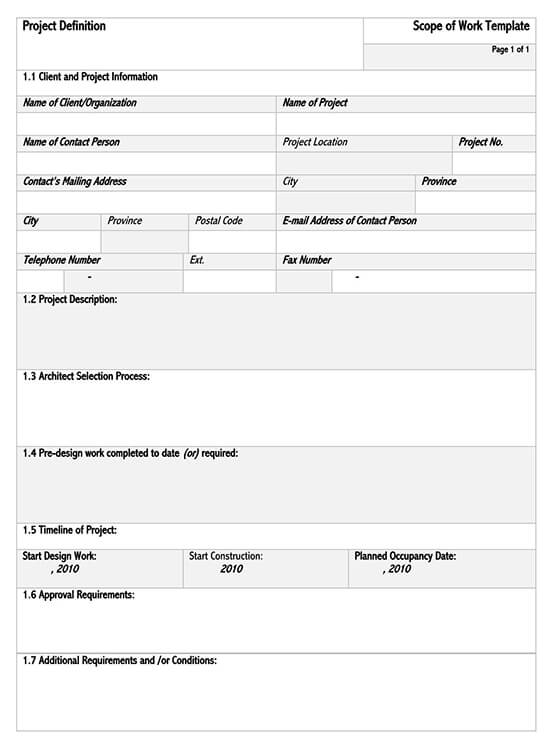
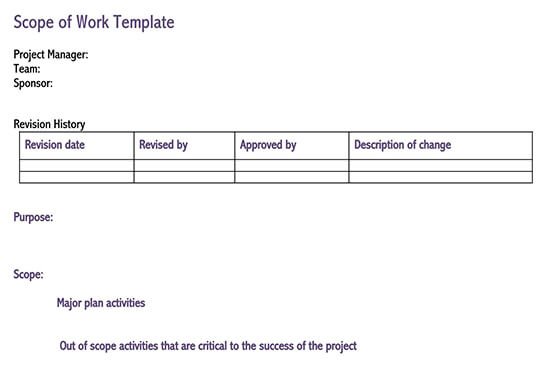
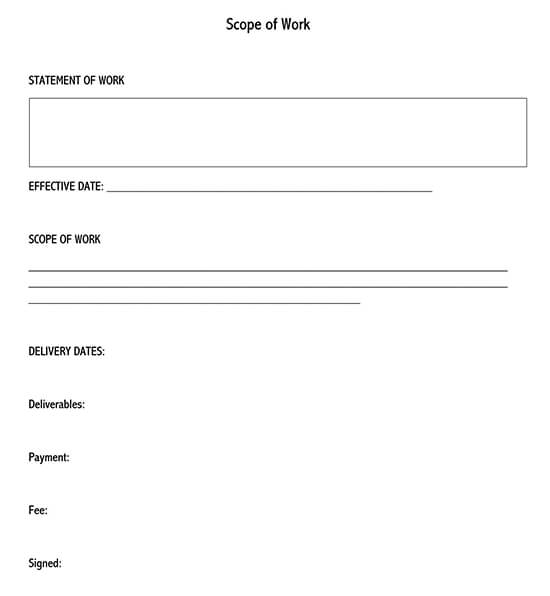
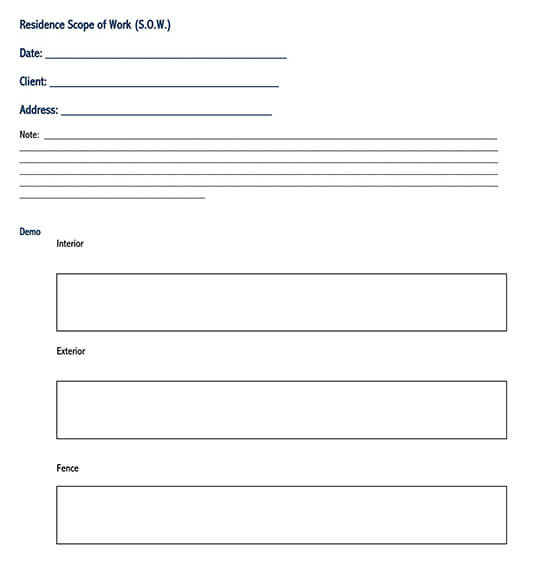
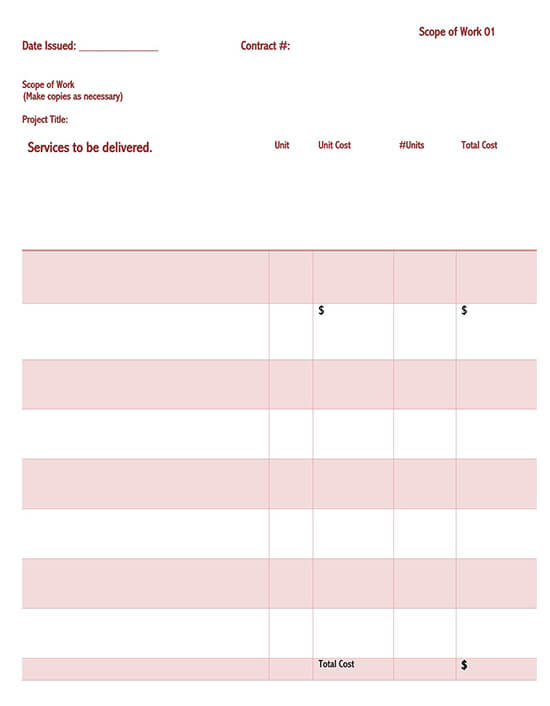
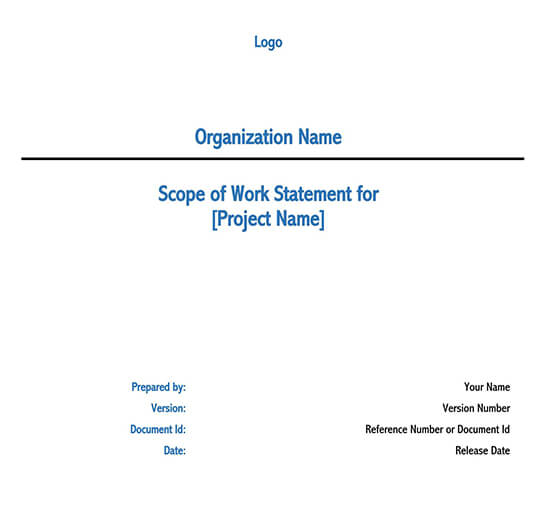
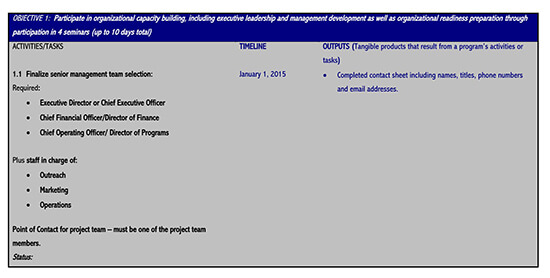
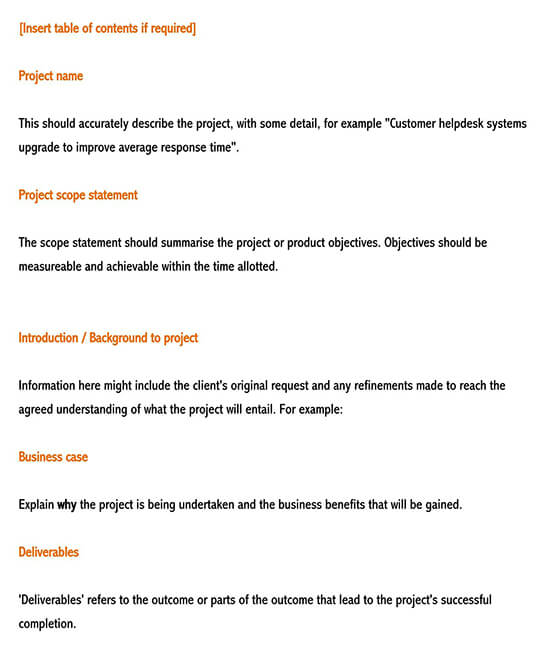
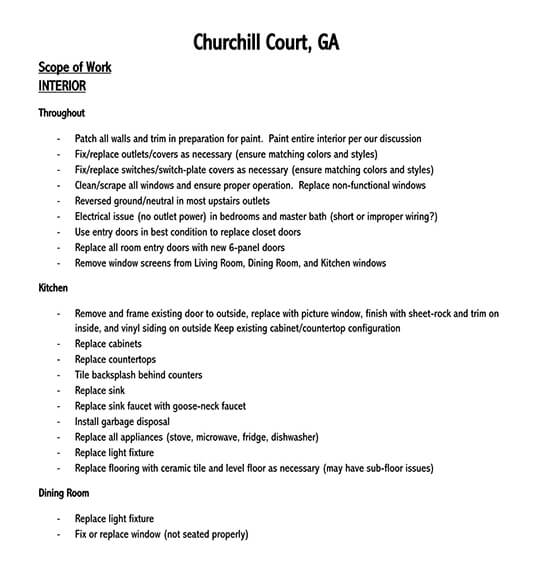
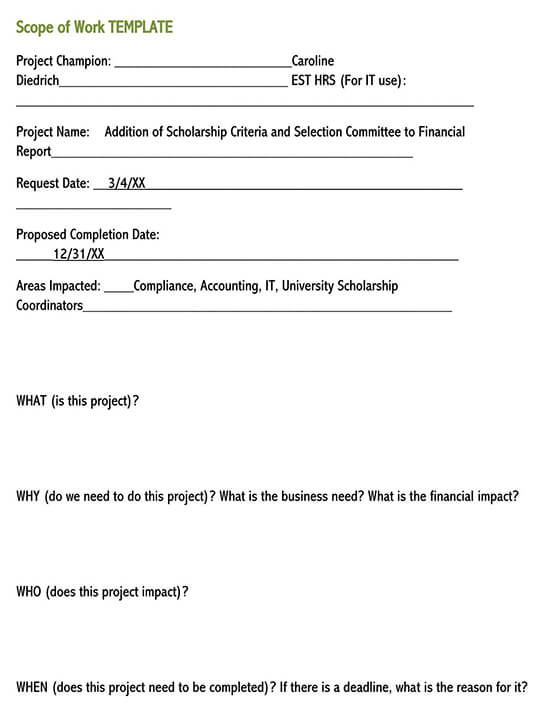
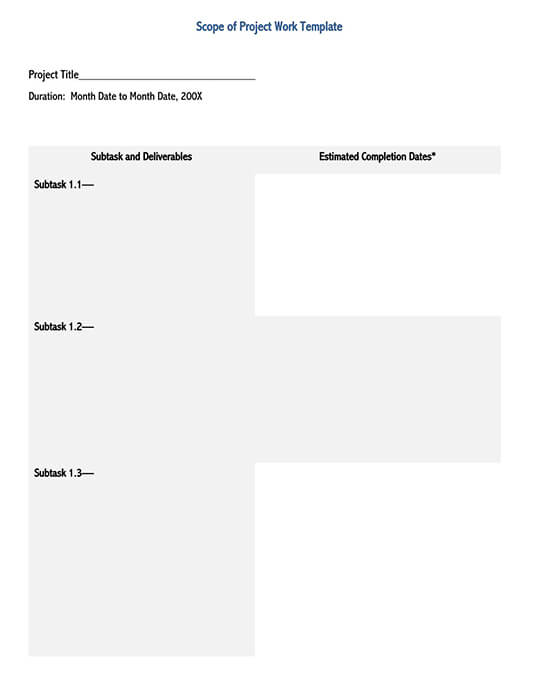

Basic Elements of a Scope of Work (SOW)
Basically, the SOW document highlights everything that is needed within a project. This includes the person responsible for the implementation of the project, the technicality that will be deployed during the implementation, and the type of materials that will be necessary.
As part of these highlights, the SOW is often comprised of the following elements:
- Project contractor and their responsibilities
- Contract objectives, visions, and missions
- An estimate of project labor cost
- The appropriate method of payment and schedules
- Operation standards, regulations and contracts terms and conditions
- An explanation of project limitations and other related activities
What to Include?
Standard SOW document usually include the following:
Project overview
This is a brief statement that describes what the project is all about.
Deliverables
Deliverables refer to what your project/contract is meant to deliver. In other words, it’s the expected goals and targets that must be achieved within the project execution.
Project scope
This includes all the strategies set towards the execution of the project. Project scope is often categorized into two, i.e., the technical aspects and the tasks. The technical aspect comprises the techniques or methodologies necessary for project implementation. On the other hand, the task aspect refers to the specific requests or tasks needed to realize the objectives of the project.
Timeline
This refers to the project’s lifetime, which ranges from its start to its end/completion. It focuses on the project’s tasks, their delivery dates, time restrictions, and the expected project duration.
Project management
This section highlights some key management responsibilities within the project. This includes the administration, relevant stakeholders, and other staff. Plus, it highlights the payment terms and methods well as other regulatory and control measures.
Milestones
Usually, some projects can be long, demanding, and complex in their nature. Therefore, a well-written SOW needs to have tasks broken down into small manageable parts. These small tasks form larger project phases known as milestones. Therefore, as a project manager, it’s necessary to include various milestones in your SOW in order to make progress monitoring easy. This also ensures you adhere to the initially planned schedule.
Project reports
Within the duration of project implementation, you will be expected to deliver project reports at some intervals. These reports are necessary as they provide a formal record of the progress of the project.
Tips for Writing a Good Scope of Work
As a project manager, writing a good SOW enables you to get maximum out of your project. This, in turn, helps you earn a good reputation as well as maintain positive customer relations. Plus, it helps in echoing your professionalism when approaching contracts.
Therefore, the following tips will help you write a good SOW for your clients.
- First, before putting everything on writing, take some time to understand your customer’s requirements, preferences, and suggestions.
- Discuss with your team members on the project/contract requirements in detail. Share as much information as possible regarding the same.
- Use visual representations in your SOW. Remember, pictures speak a thousand words. Therefore make good use of pictorial and graphical representations as you can.
- Identify your assumptions and provide a complete outline of the project/contract management procedures.
- Be SMART while setting your goals and objectives. Make sure your goals/objectives are SMART, i.e., Specific, Measurable, Attainable/Achievable, Realistic, and Timely.
- Highlight some of the warranties, service and maintenance terms, and other necessary terms and regulations.
- Use simple but straightforward language that is easy to understand by all the parties. Also, avoid using vulgar words or those that would evoke intimidations.
Takeaway
In simple terms, the SOW is a document that helps establish a foundation for the success of your project. It acts as a powerful tool for keeping everyone accountable for project tasks. The more you make your SOW clear and updated, the more your project work will flow. Therefore, as a project manager, I always aim to create a SOW.












